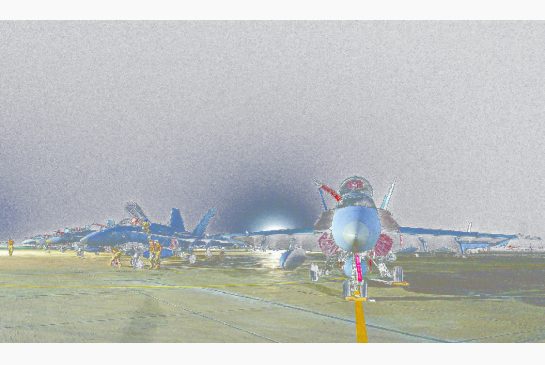
A Canadian Armed Forces CF-18 Fighter jets arrive at the Canadian Air Task Force Flight Operations Area in Kuwait on Oct. 28, 2014.The jets formed part of coalition assistance to security forces in the Republic of Iraq who are fighting against the Islamic State of Iraq and the Levant.
Canadian Prime Minister Justin Trudeau announced on Monday that Canada would withdraw within weeks six jets that have been bombing targets in Iraq and Syria, in a step to end Canada’s controversial combat role in the effort against ISIS.
As the Liberals pledged during the election, the jets will be put out, leaving their allies unhappy with the decision. Bombing had begun in April 2015 under the previous Conservative government.
Trudeau confirmed Monday that the bombing missions by CF-18s will end no later than Feb. 22. Canada will only keep operations by two surveillance planes in the region and an air-to-air refueling jet, and will triple the number of soldiers training Kurdish troops in northern Iraq to about 200. The military now has 70 trainers on the ground in northern Iraq.
“In any mission, you need to make choices. We can’t do everything. In our decision, we were guided by our desire to do what we could do best to help in the region and to do it in the right way,” Trudeau said during a news conference.
“The people terrorized by ISIS every day don’t need our vengeance, they need our help.”
The government’s decision was a result of the advancement of the Syrian army towards the Turkish border on Monday in a major offensive backed by Russia and Iran in one of the biggest shifts in momentum of the war, a step that took the first peace talks for two years back to scratch.
The new military mission would be involved for at least two years, before being re-evaluated, Trudeau said. Canada learned from its experience in Afghanistan that the best way to uphold long-term stability is by helping local people fight to get their territory back, he explained.
The government also announced that it was boosting its humanitarian aid to assist with the flood of refugees escaping war and violence. Ottawa will allocate $840 million over three years to provide food, shelter, health care, and other essentials.
Another $270 million will be allotted for improving local capacity in education, health, water and sanitation.
Public opinion polls show that Canadians are sharply divided when it comes to the role of Canada in the fight against ISIS. A source reported to Reuters last week that the United States, Britain and France were impatient with Ottawa over how long it has taken Trudeau to clarify Canada’s combat role.
